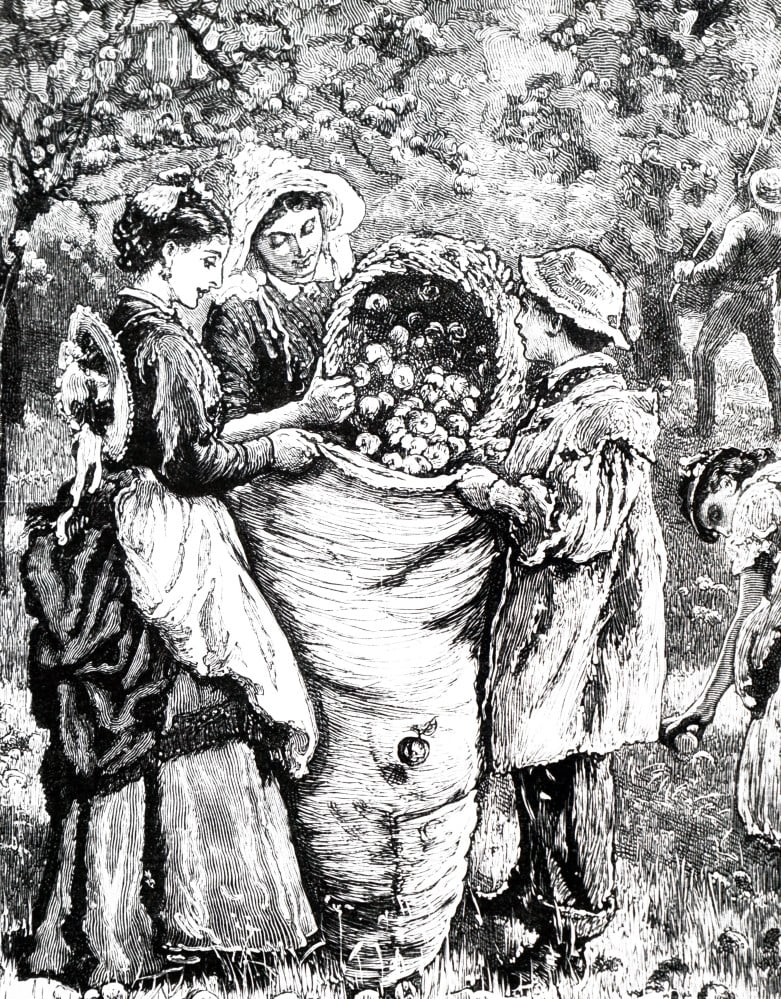
Where the word ‘apple’ came from and why the forbidden fruit was unlucky to be linked with the fall of man
- While the origin of ‘apple’ is straightforward, what is interesting is that the Old English word referred not only to apples but to any kind of fruit
- Apples are rich with symbolism; the first element of the word in Mandarin and Cantonese is homophonous with that for ‘peace’
An apple a day keeps the doctor away – such sayings abound for this familiar fruit.
The origin of “apple” is straightforward, traced to the Proto-Germanic *ap(a)laz, and likely ultimately the Proto-Indo-European (PIE) *ab(e)l-. What is interesting is that the word æppel in Old English referred not only to apples but to any kind of fruit, or fruit in general.
In Middle English, and up to the 17th century, it was a generic term for all fruit apart from berries, and even included nuts.
More “exotic” fruits were given names that were modified in relation to apples. For example, Old English dates were fingeræppla, literally “finger-apples”, and cucumbers eorþæppla “earth-apples”, while the Middle English appel of paradis was a banana.
Another “fruit of the earth” is pomme de terre, French for “potato” (probably styled after the 17th century German erdapfel or 18th century Dutch aardappel). “Pomme” originated in another branch of the PIE tree – the classical Latin pōmum “fruit (of any kind), ball, orb”, which, similarly, referred to apples or fruit comparable to apples (and other spherical objects). English’s sole survivor is the botanical designation pome fruit.

Latin also gave mālum (borrowed from the ancient Greek μᾶλον) more specifically for any fleshy tree fruit that contained a kernel. Malus is used as the scientific name for the genus of species of small deciduous trees or shrubs, including the domesticated orchard apple.
While its common meaning as apple or apple tree is obsolete in modern English, the adjective malic, via the French malique, persists in malic acid, one of three common acids found in fruit, including apples.
Apples are rich with symbolism. The first element of the word in Mandarin/Cantonese, píng/pìng, is homophonous with that for “peace”. In Western mythology apples are associated with goodness, beauty and immortality.
Hong Kong’s Tiananmen remembrance: where the word ‘vigil’ comes from
How then its association with the Garden of Eden’s fated fruit? The Hebrew Bible uses the generic term peri “fruit” – characterised as fig, pomegranate, grape, apricot, citron or even wheat.
Translating this for the late-fourth century Vulgate, St Jerome chose the Latin mālus – believed to be a pun on the (unrelated) word malus (with short “a”) meaning “evil”.
Popular art portrayed the couple by an apple tree. And in Milton’s 17th century epic poem about the fall of man, the fruit, as it is called in the opening lines, gets explicitly named apple – though this was still intended with the generic meaning.
But with the narrowing of semantics already occurring in English, Paradise Lost helped establish apple as the forbidden fruit.

